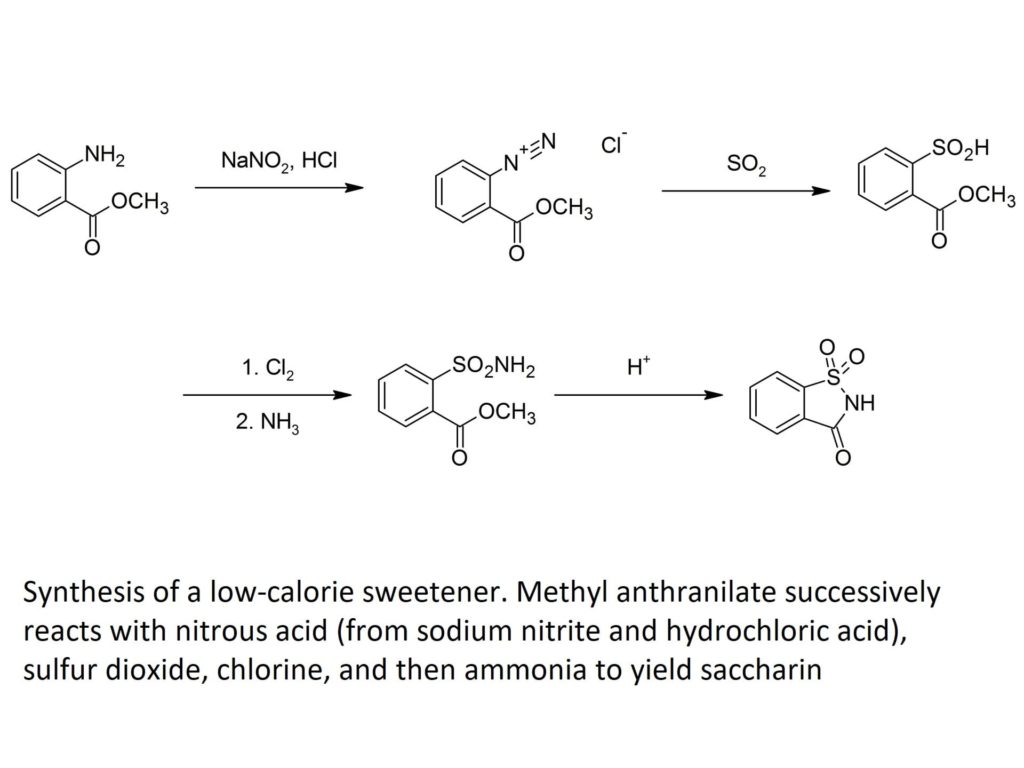
Artificial Low Calorie Sweeteners May Contribute to Weight Gain & Other Health Problems
With the ongoing obesity epidemic and increased attention to health and physical fitness, low-calorie sweeteners (LCS) have been enjoying a surge in popularity as a way to enjoy sweets without the added calories from refined sugars that contribute to weight gain. Artificial sweeteners are consumed by many hoping to lose weight. However, recent research papers and media articles assert that LCS may conversely lead to weight gain rather than weight loss.
Proposed mechanisms of weight gain with LCS include an induced craving for sweets that then leads to consumption of other foods high in processed sugars. Studies on both animals and humans have shown increased overall increased caloric consumption within the LCS group due to the group receiving artificial sweeteners eating larger portions of artificially sweetened food or consuming more calories in addition to the calorie-free food and/or drinks. Negative effects of artificial sweeteners on the intestinal microbiome may impair normal food and sugar metabolism.
Avoid side effects: Get raw honey delivered fresh from our farm to your table.
Artificial Low-Calorie Sweeteners Linked to Health Risks
Common low-calorie sweeteners used in North America include aspartame, saccharin, and sucralose and stevia leaf extract (steviol glycosides). The benefits of calorie-free sweetness don’t come without controversy and risk. Here are just a few examples potential hazards associated with artificial low-cal sweeteners:

Aspartame (Equal, Nutrasweet): At least one (controversial) animal study showed and increased risk of some cancers associated with aspartame consumption. The World Health Organization classifies aspartame as “possibly carcinogenic to humans”, while also stating that aspartame may have potential undesirable effects including increased risk of diabetes and cardiovascular disease. By contrast. the FDA considers aspartame safe for human consumption at normal consumption levels.
Erythritol, commonly accompanying stevia as a bulking agent, has been linked with a significant (up to 100% increased risk) in blood clotting, heart attack and death in a study published in Nature Medicine.
Saccharin was one of the first LCS with popularity peaking in the 1970s when a study on rats indicated a risk of bladder cancer. Saccharin was the banned in Canada and the USA until 2000 after further research concluded that at normal levels of human consumption, saccharin did not cause bladder cancer.
Non-digestible artificial sweeteners may have detrimental effects on healthy intestinal microbiomes, disrupt healthy glucose metabolism and even increase risk of developing diabetes. A study involving 3000 adults found that participants that regularly consumed diet drinks (sweetened with aritificial LCS) suffered 3 times as many stokes as those who didn’t drink diet drinks and were at 3 times higher risk for heart attack. A study on the Framingham Heart Study Offspring cohort found that artificial sweeteners increased the risk of Alzheimer’s Disease almost 3-fold while also increasing risk of stroke and dementia of any cause.
Counterpoint and Context

As a counterpoint to studies that show LCS are associated with weight gain, A recent review and meta-analysis criticized the studies that showed artificial sweeteners were linked to weight gain and concluded that there is no evidence LCS directly cause weight gain. It found that replacing dietary processed sugars with LCS does promote weight loss if other aspects of the diet and lifestyle are controlled. Though the evidence for health risks from various LCS is inconclusive and incomplete, it is clear that low-calorie sweeteners are not a magic bullet for easy, risk-free weight loss. However, it seems highly unlikely that any of the LCS would lead to the myriad of harms that a diet rich in processed sugars does.
Those that prefer to eat natural, unprocessed foods should be aware that these LCS are highly processed food additives manufactured, refined, and purified by chemical processes. While it’s true that stevia leaf was used as a natural sweeter by natives of Brazil and Paraguay, the stevia glycoside extracts like rebiana (the most common stevia extract) are processed, refined compounds often mixed with other bulking agents such as erythritol. The rebiana patent is owned by Coca-Cola and licensed to industrial food giant, Cargill.
Get nature's healthy sweetener delivered fresh from our bees
Raw Honey: Promoting Healthy Weight Loss
A food often overlooked as a natural weight-loss-promoting sweetener is raw honey. Unlike the low-calorie sweeteners discussed above, honey is an energy-dense carbohydrate, meaning that those with impaired blood sugars and diabetes should monitor their sugars if eating honey. Contrary to LCS, honey is a naturally occurring food that has been eaten safely and used as a folk remedy for millennia. Perhaps because honey composition includes similar natural sugars those in refined sugars, misinformed individuals, including even some medical doctors and dieticians dismiss raw honey as “just another sugar”. In terms of physiologic and metabolic effects and in terms of health benefits, this couldn’t be farther from the truth. For individuals older than a year old, who are not allergic to honey and don’t have diabetes, raw honey poses no health risks.
Its anti-oxidant, anti-inflammatory, immune-boosting, anti-diabetic, pro-digestive, pre-biotic, and beneficial effects on the cardiovascular system lead to raw honey often being referred to as a “superfood”. Contrary to artificial sweeters (and processed sugars), raw honey has been shown to have beneficial effects on the cardiovascular system and reduce the risk of heart attack. Raw honey is also thought to be neuroprotective, decreasing the risks of cognitive decline. As a pre-biotic raw honey encourages the growth of “good bacteria” in the gut, encouraging a healthy intestinal microbiome. Raw honey replaces potential and known health risks of refined sugars and manufactured low-calorie sweeteners with a long list of known health benefits.

Given the high energy density of honey, it can be surprising that eating honey tends to promote weight loss. Weight loss is most pronounced in active individuals when honey is used to replace dietary refined sugars (just as LCS promote weight loss by reducing consumption of processed sugars with their “empty calories”). Study after study has shown regular consumption of honey results in greater weight loss or decreased weight gain compared with diets of equal (or even fewer) containing processed sugars. Some studies have even shown that supplementation of the regular diet honey versus placebo (water, with zero calories) is associated with improved weight loss in the honey group, implying honey possesses weight-loss properties beyond simply decreasing refined sugar intake. The fact that eating raw honey regularly reduces the risk of developing diabetes provides evidence of its beneficial effect on energy metabolism. Ongoing research is underway investigating raw honey as a possible treatment for diabetes.
While low-calorie sweeteners can allow consumption of sweets without adding calories to the diet, the body and mind need energy to function. Artificial calorie-free sweeteners do not provide energy, so when the body signals the need for energy, individuals may simply increase their caloric intake alongside consumption of low-cal drinks and snacks. Raw honey provides long-lasting energy in a healthy manner that reduces hunger, avoids sugar cravings, while promoting healthy weight management.
Share this story
